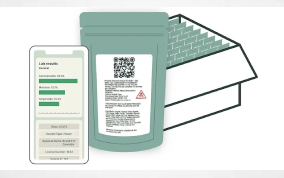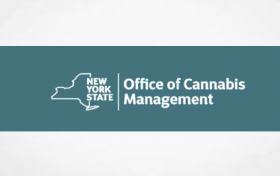Issue
Whether the federal Controlled Substances Act (CSA) 21 U.S.C. §§ 801-971, which makes the possession of cannabis a federal crime, preempts provisions of the Minnesota Workers’ Compensation Act that makes an employer liable for an injured employee’s cost of treating a work-related injury. Further, does the Minnesota statute conflict with federal law which prohibits possession of cannabis, when the employer would be required to pay for the expense of treating the employee using medical cannabis?
Summary
Respondent was employed by Mendota Heights Dental Center as a dental hygienist when she suffered a work-related injury. Respondent received medical treatment including chiropractic treatment, medication management, physical therapy, and injection therapy. She underwent surgery, which only provided temporary relief and was later prescribed medication to manage the chronic pain, including Vicodin and fentanyl. Respondent discontinued her medication about 3 years later due to adverse side effects. Respondent’s doctor then certified her for participation in Minnesota’s medical cannabis program, in compliance with the THC Therapeutic Research Act (THC Act) Minn. Stat. §§ 152.21-.37 (2020), after multiple unsuccessful attempts at medical intervention. Respondent requested reimbursement for the cost of the medical cannabis treatment for her chronic pain. Her employer argued that the federal prohibition in the Controlled Substances Act on the possession of cannabis preempts the requirement under Minnesota’s worker compensation laws for an employer to pay for an employee’s medical treatment when it involves medical cannabis.
The Workers Compensation Court of Appeals (WCCA) provided that it did not have subject matter jurisdiction to address the preemption argument on behalf of employer and therefore declined to address such issue, and upheld the judge’s order requiring employer to reimburse employee for her medical cannabis treatment.
Employer, relying on Bourgoin, the Maine Supreme Judicial Court case, argues that it is impossible to comply with state and federal law because if it complies with Minnesota workers’ compensation law and reimburses employee for the medical cannabis treatment, then they would be unable to comply with federal law which prohibits aiding and abetting the possession of cannabis. (Bourgoin v. Twin Rivers Paper Co., LLC, 187 A.3d 10, 20 (Me. 2018)). Employee refuted this by relying on other state court decisions that found no conflict between the federal law and state law requirements to reimburse for medical cannabis, along with the dissent in Bourgoin. She further argues that Congress has demonstrated an intent to not obstruct state medical cannabis programs by prohibiting the United States Department of Justice from spending funds to prosecute persons who use medical cannabis in compliance with their state laws.
Conclusion
The Court concluded that the Workers Compensation Court of Appeals does not in fact have jurisdiction to hear the case because it would be required to interpret and analyze federal law, which it is not within the scope of its jurisdiction. The Legislature has provided that the WCCA’s jurisdiction over legal questions as specific to those “arising under the worker’s compensation laws” of Minnesota, and the preemption issue presented in this case does not arise from Minnesota’s workers’ compensation laws.
The Court additionally concluded that requiring Mendota Heights, or employer, to pay for Respondent’s medical cannabis, by way of court order, makes Mendota Heights criminally liable for aiding and abetting the possession of cannabis under federal law. They further noted that the preemption issue here frustrates the intention of the Legislature to make medical cannabis available to patients suffering chronic pain. They suggest that if the outcome is not beneficial to the employee, then the remedy is for Congress to pass and the President to sign legislation that address such preemption issue.
Takeaways
The Court here was willing to mandate employer to reimburse employee for medical treatment involving cannabis, however, the Supremacy Clause and federal preemption prevented them from doing so.

Tiffany Williams
Tiffany Williams is a third-year law student at New York Law School. She is interested in the zoning and tax regulatory schemes surrounding cannabis law.



















